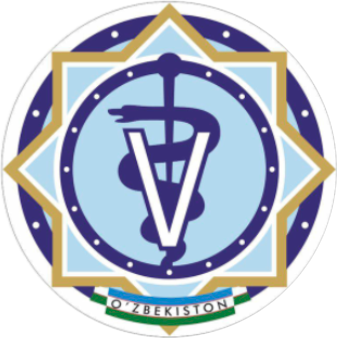About the Committee
Established in accordance with the Decree of the President of the Republic of Uzbekistan No. PF-5696 dated March 28, 2019, "On measures for the fundamental improvement of the state management system in the field of veterinary and livestock" and Resolution No. PQ-4254 "On the organization of the activities of the State Committee of the Republic of Uzbekistan for the Development of Veterinary and Livestock".
The main tasks of the committee are defined as follows:
-
implementing a unified state policy in the field of veterinary medicine, livestock breeding, and pedigree work, aligning regulatory and legal documents with international standards, coordinating the interaction of state, economic management bodies, and local authorities, and licensing veterinary activities;
-
developing all branches of veterinary medicine and livestock farming, including cattle breeding, sheep breeding, Karakul sheep farming, goat breeding, horse breeding, poultry farming, fish farming, beekeeping, and rabbit breeding, coordinating breeding and selection activities, and developing and implementing targeted state programs in these areas;
-
ensuring the protection of the country's territory from the entry of infectious animal diseases, introducing modern methods of treatment and disease prevention, and organizing the production of new types and forms of veterinary medicines based on the achievements of domestic and foreign science;
-
maintaining epizootic well-being by timely detection of infectious animal diseases, diagnosis, and preventive measures to prevent their spread, as well as monitoring the effectiveness of these measures;
-
implementing a unified mechanism for state support of livestock and pedigree breeding, organizing the placement of forage crops on land allocated for livestock farms, and monitoring the achievement of high productivity;
-
organizing the identification, accounting, decommissioning, and maintenance of animals in livestock industries, as well as zoning agricultural animals by breed;
-
exercising state control over compliance with veterinary and breeding legislation, as well as the quality and circulation of veterinary drugs and feed additives;
-
comprehensively developing scientific, methodological, and educational potential in the field of veterinary medicine and breeding, defining research directions, coordinating the implementation of fundamental and applied research results, as well as innovative developments in veterinary and breeding practices;
-
certifying and standardizing livestock products in accordance with international requirements, widely implementing modern quality management methods, and attracting foreign investments and grants to the veterinary and livestock sectors;
-
systematically training personnel in the sector, organizing advanced training and retraining of specialists, and improving the work methods and forms of managers and professionals.
